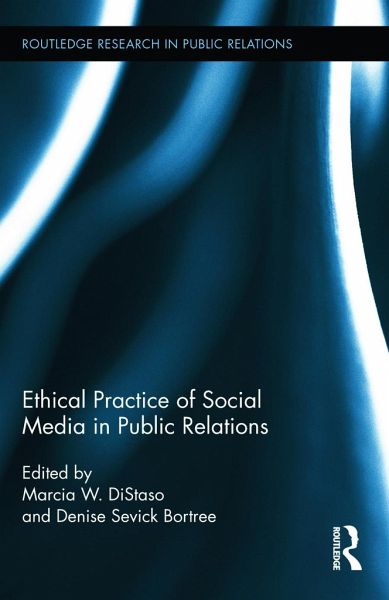
Ethical Practice of Social Media in Public Relations
Versandkostenfrei!
Versandfertig in 1-2 Wochen
185,99 €
inkl. MwSt.
Weitere Ausgaben:

PAYBACK Punkte
93 °P sammeln!
Social media engagement requires organizations to actively participate with public groups, and this highly-interactive exchange raises a new set of ethical concerns for communicators. In this rapidly changing communications environment, the long-term implications of social media are uncertain, and this book provides the much needed research to understand its impact on audiences and organizations. Through an examination of a broad range of ethics concepts including transparency and online identities, policies, corporate responsibility, and measurement, this book explores a variety of topics imp...
Social media engagement requires organizations to actively participate with public groups, and this highly-interactive exchange raises a new set of ethical concerns for communicators. In this rapidly changing communications environment, the long-term implications of social media are uncertain, and this book provides the much needed research to understand its impact on audiences and organizations. Through an examination of a broad range of ethics concepts including transparency and online identities, policies, corporate responsibility, and measurement, this book explores a variety of topics important to public relations.













